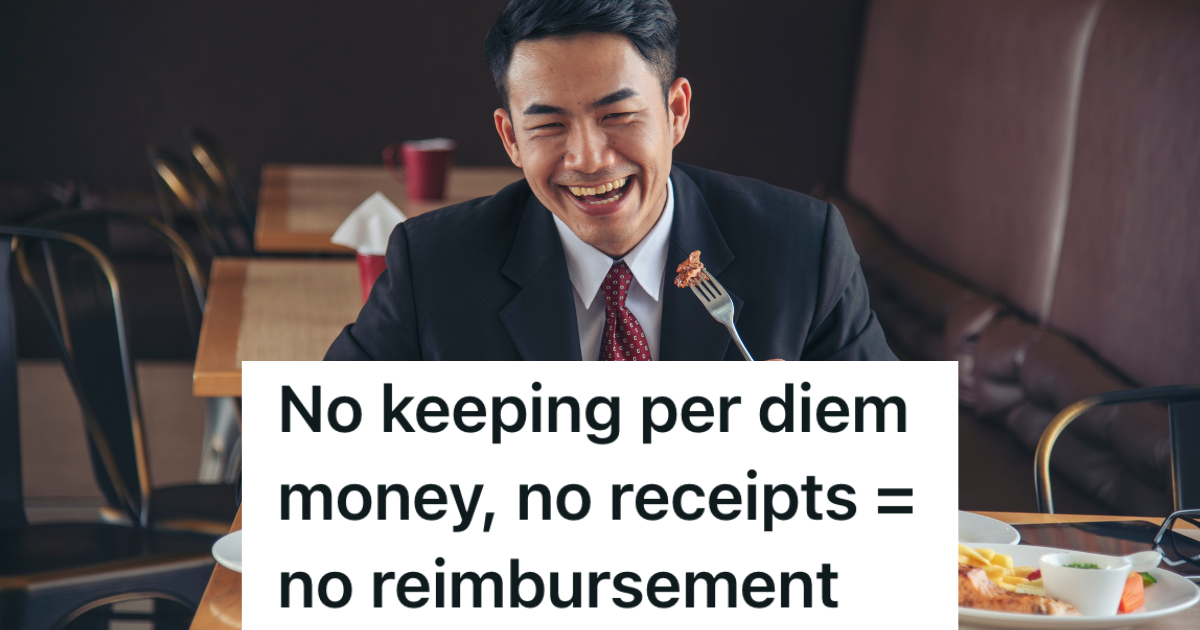Understanding Business Travel Expense Reimbursement Policies
Business travel expense reimbursement policies vary widely across different companies. Some policies are designed to encourage employees to be frugal, while others may inadvertently lead to unnecessary spending. This story highlights how a change in per diem rules by a new boss led to an unexpected outcome.
The Previous Per Diem Policy
A few decades ago, the author traveled extensively for work, averaging between 30 to 35 weeks annually. Initially, they looked forward to the excitement of travel, but quickly realized it was filled with long hours and constant movement.
The previous boss had a generous per diem policy of $30 per day for meals. While this amount might seem low, it was sufficient for the author’s needs. They would often start the day with a complimentary continental breakfast, skip lunch due to a busy schedule, and grab a quick bite from Subway on the way back to the hotel. Although not the healthiest approach, this method allowed the author to save over $100 each week.
The Change in Policy
Eventually, the company was sold, and the author returned from a trip only to find that their per diem request was denied. Since they didn’t have receipts, they were required to cover all meal expenses themselves. The new boss introduced strict rules: three meals a day, no more than a 15% tip, no room service, no snacks, desserts, or alcohol.
The author tried to negotiate, explaining the previous arrangement, but the boss remained firm. “If you don’t have a receipt, you don’t get reimbursed,” he said. This new policy seemed to favor extravagant spending over frugality.
The Consequences of the New Policy
The author decided to follow the new policy to the letter during their next trip to the Bay Area of California, which was known for its high costs. To demonstrate the absurdity of the policy, they opted for the most expensive options available. For breakfast, they chose steak and eggs at a four-star hotel. For dinner, they went for the “Surf and Turf” special, which included lobster and steak. They even ordered takeout for lunch the next day.
This week of dining out proved to be extremely costly. Upon returning to the office, the author submitted their expenses with receipts. Instead of the expected $150, the company sent a check for over $700. The new boss quickly realized the flaw in his policy and reverted to the original $30 per diem, allowing the author to keep any unused funds.
Lessons Learned
This experience highlights the importance of understanding employee behavior when setting reimbursement policies. If employees are not incentivized to spend wisely, they may end up spending more than necessary. The author’s actions demonstrated how strict policies can lead to unintended consequences, ultimately leading to a return to a more practical approach.
Reddit Reactions and Additional Insights
Reddit users shared their own experiences with business travel policies, showing that many companies struggle to balance cost control with employee satisfaction. One user mentioned a beer distributor’s policy, while another discussed expense reimbursement limits. These stories emphasize that employees are unlikely to spend frugally if it doesn’t benefit them directly.
Conclusion
This anecdote serves as a reminder that sometimes, the best way to highlight the flaws in a new policy is to follow it to its extreme. By doing so, the author not only exposed the impracticality of the new rules but also helped the company return to a more reasonable and effective approach.



